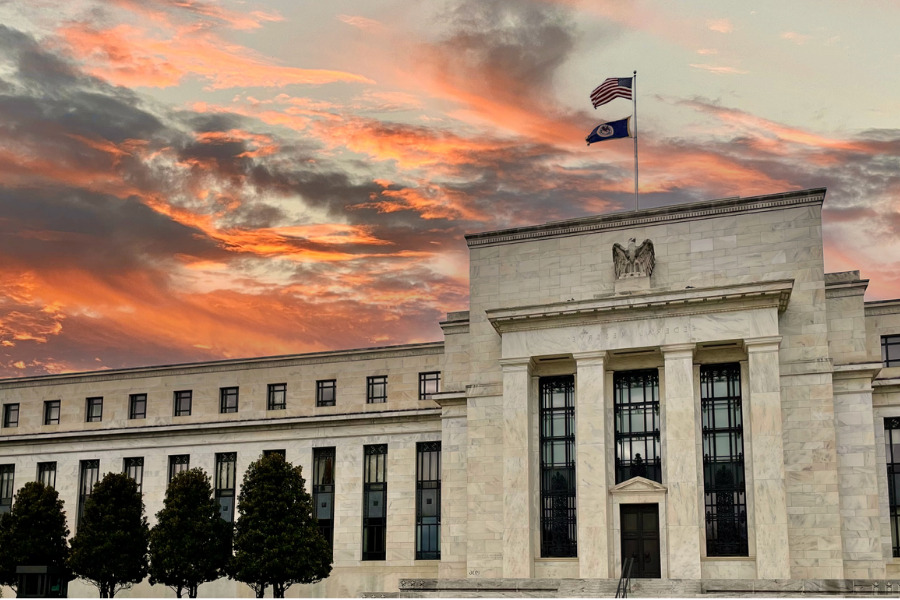

A record of the Federal Reserve’s July policy meeting due Wednesday is set to show only a minority of officials favored holding interest rates steady over the remainder of the year, according to Bloomberg Economics.
At the same time, a majority “likely maintained cautious optimism” that the US economy is in for a soft landing, Bloomberg economists Anna Wong and Stuart Paul wrote Tuesday in a preview of minutes of the Federal Open Market Committee’s July 25-26 meeting.
“Officials who favored holding rates steady after July — the minority on the FOMC — may be more concerned about deteriorating credit conditions,” Wong and Paul said. “Judging by Fed Chair Jerome Powell’s marginally dovish tone at the post-meeting press conference, he may be on the more dovish side of the committee.”
Public remarks from other Fed officials since the July meeting suggest the strong degree of consensus underpinning the aggressive tightening campaign of the last year-and-a-half may be starting to fray.
Some, such as Philadelphia Fed President Patrick Harker, have indicated the central bank might not need to keep raising interest rates. Others, including Fed Governor Michelle Bowman, have taken the opposite view.
Investors currently do not expect another rate increase this year, according to futures contracts, though the implied odds of a hike at the Oct. 31-Nov. 1 meeting are higher than those for their next meeting on Sept. 19-20. Fed watchers will listen for a possible signal from Powell at the Kansas City Fed’s annual Jackson Hole conference in Wyoming next week.
While the minutes may give a sense of the relative size of each camp on the committee at the time of the July meeting, economic data released since then may have already altered the balance, according to Wong and Paul.
They pointed in particular to a quarterly report on wage growth published on July 28, which showed a sharp deceleration, and an Aug. 3 report on unit labor costs which also revealed a subdued rate of increase.
“That should help limit concerns the labor market will further fuel inflation,” the Bloomberg economists wrote. “As such, we expect FOMC sentiment has turned more dovish since the July meeting.”

Federal complaint filed in Texas court by a consortium of 11 states argues the fund giants used their market power to pressure energy companies and ultimately hurt consumers.

B. Riley Financial's share price has dropped more than 68 percent over the past 12 months.

The defectors, separately located in the Chicagoland and Texas, reportedly managed more than $260 million combined.

Most of the proceeds withdrawn from the client's IRA actually went to an account and was used for a third party's benefit, according to CFP Board order.

Founder of Chicago-based trading powerhouse, whose crypto trading unit has been in the regulator's crosshairs, pans the Gensler-led agency's efforts as 'not good uses of taxpayer dollars.'
Streamline your outreach with Aidentified's AI-driven solutions
This season’s market volatility: Positioning for rate relief, income growth and the AI rebound
